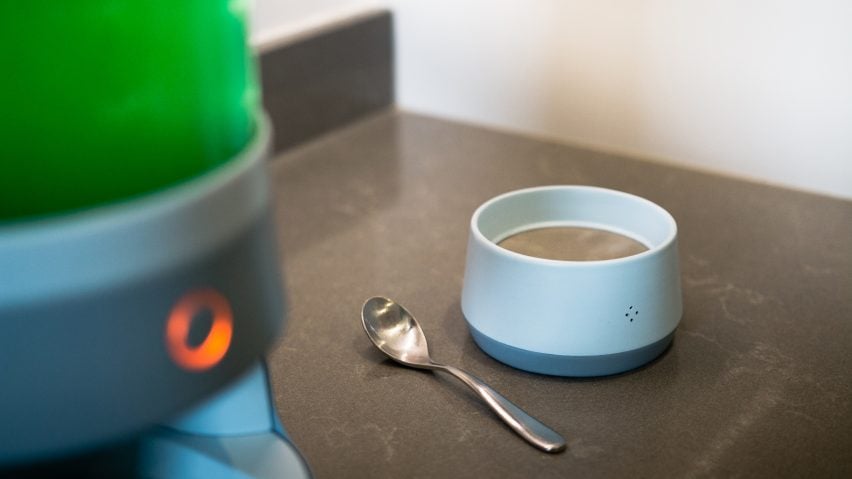
Spira countertop bioreactor allows users to grow their own algae for food
Individuals could cut their greenhouse-gas emissions by replacing meals with algae grown at home using the countertop Spira device by recent design graduate Rob Russell.
Spira is a photobioreactor, which means it uses light to cultivate microorganisms – in this case, spirulina, a nutrient-dense algae.
Spirulina is so rich in protein, minerals, vitamins and antioxidants that NASA uses it as a key food source for astronauts on long space-flights.
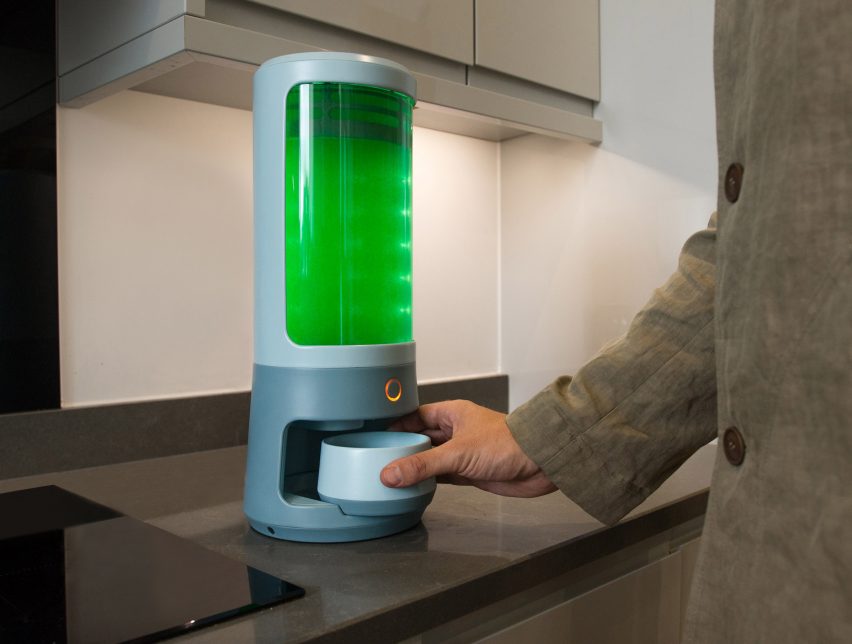
Russell designed Spira for daily harvesting of the microalgae. The device would produce two tablespoons of fresh spirulina each day, or the equivalent of 4.5 grams in its dried form.
This small amount constitutes a recommended daily serving, which the designer suggests adding to sauces, smoothies or salads.
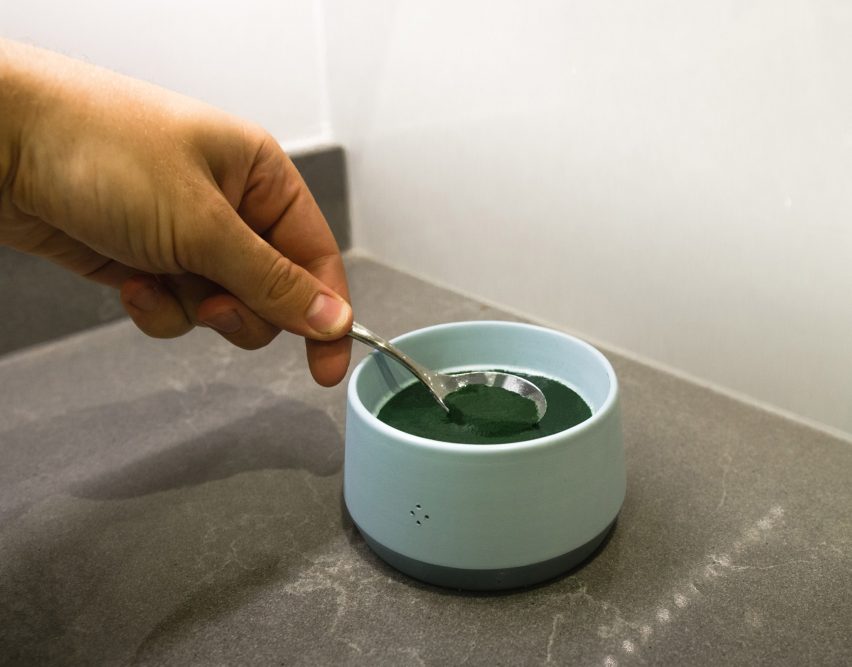
In its dehydrated form, the algae is already popular as a dietary supplement, however few people like the taste of commercially available dried spirulina. According to Russell, the algae is tasteless in its fresh form.
Harvesting it fresh at home also has the potential to increase its health benefits while reducing food miles.
It could also allow people to cut down on the overall amount of food they need to consume, and therefore reduce land- and water-intensive livestock and crop farming.
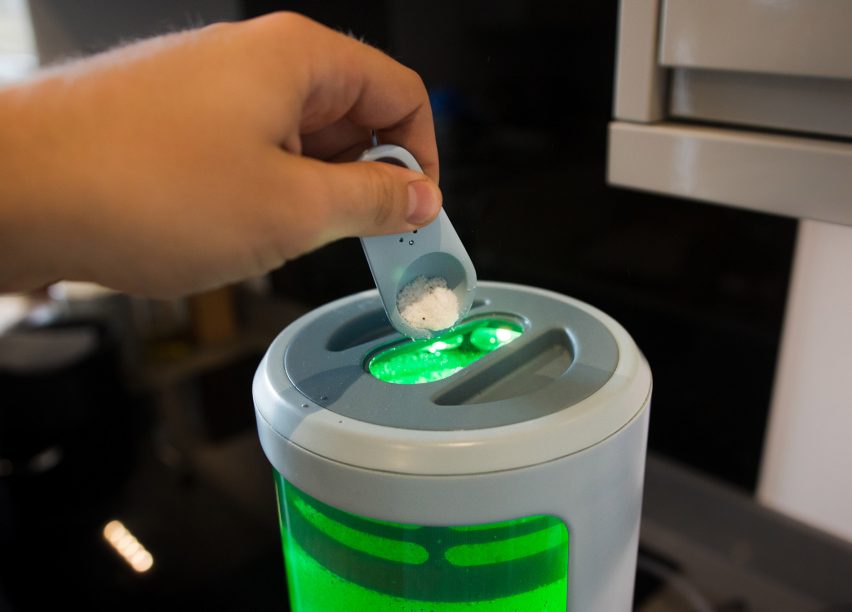
"Food, the energy-bearer on which all life relies, is responsible for 30 per cent of global greenhouse gas emissions," said Russell. "We need to reimagine the way we produce and consume nutrients in order to feed an ever-increasing population, while drastically reducing our environmental impact."
"Home-cultivated spirulina combats the four contributors of food-related greenhouse-gas emissions – production, transport, cooking and waste disposal," he added.
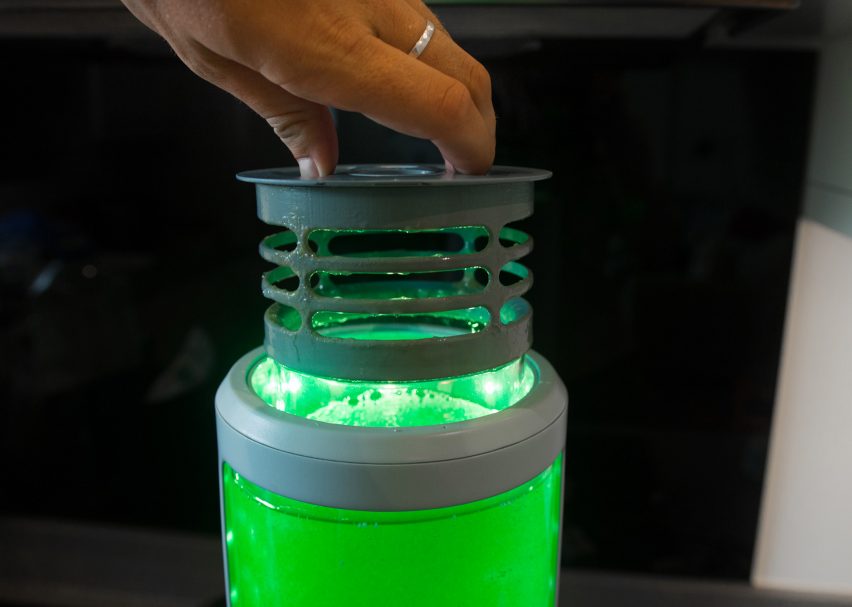
As a bonus, the bioreactor purifies the air in the home, as the spirulina converts carbon dioxide into oxygen during the natural process of photosynthesis.
Russell designed Spira specifically to optimise spirulina growth. It is an "airlift" photobioreactor, meaning that air is kept flowing through it, enhancing circulation and ensuring even light exposure.
Two concentric acrylic tubes make up the body of the device, with seven LED strips providing five watts of light per litre of solution for 16 hours per day. A heater in the base maintains an even temperature of 35 degrees celsius inside the tubes.
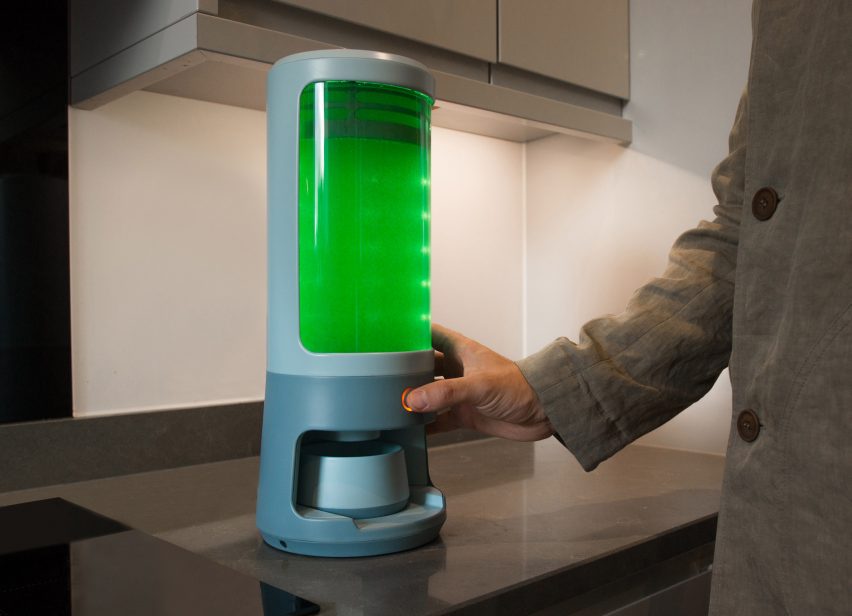
To harvest their spirulina, users push a button that causes the solution to pass into the removable harvester beneath, where it is filtered through a stainless-steel mesh.
They would then need to top up the remaining culture with a soluble growth medium, and wait a minimum of 24 hours before the next harvest.
The user can eat their fresh spirulina immediately or keep it refrigerated for up to three days or frozen indefinitely. Any uneaten algae can be given to plants as a natural fertiliser.
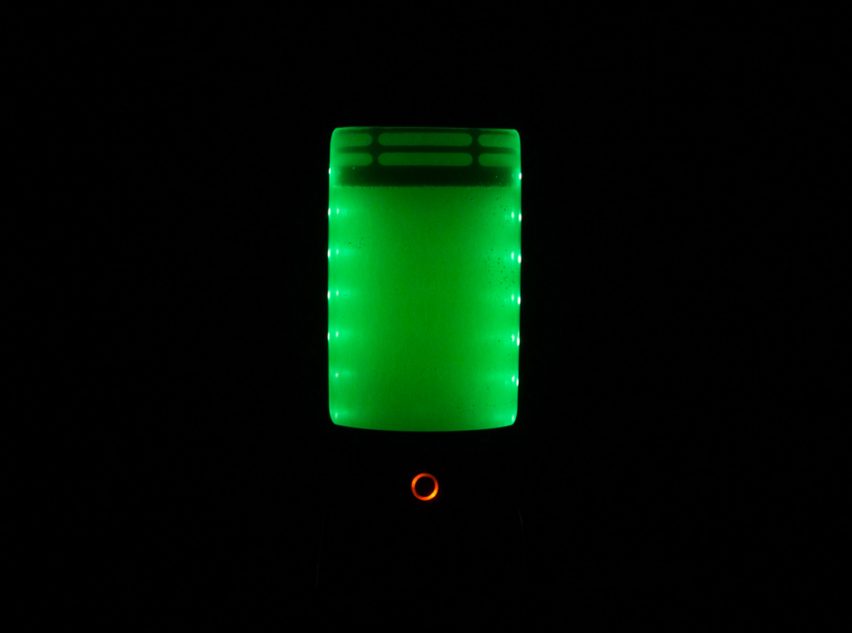
Russell designed Spira as his final-year project in the Product Design course at the University of Leeds in the UK, from where he graduated in July 2019.
He hopes to continue designing products like this, which "use living systems to address current social and environmental needs".
He is one of several designers to embrace algae for its nutritional and detoxifying potential. Hyunseok An designed a home algae micro-farm for his Rhode Island School of Design final-year project, while EcoLogicStudio used it in a "living curtain" that removes air pollution.